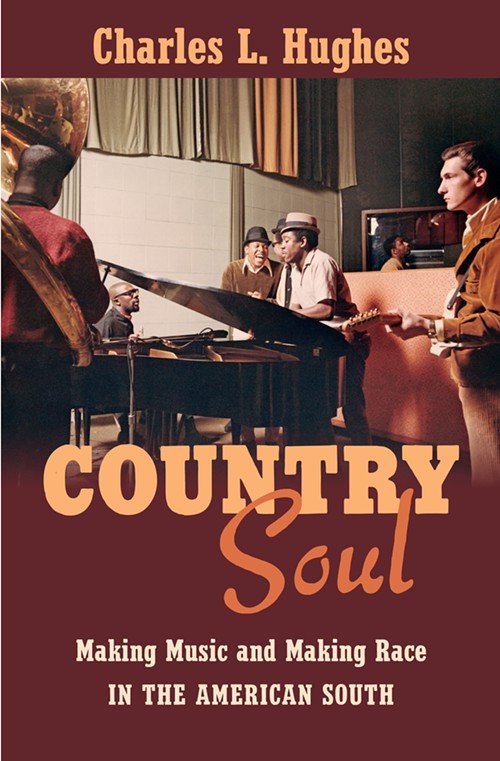“In recent decades, the South’s musicians have been widely promoted as symbols of interracial cooperation and southern music as a space where the races have come together as equals and even friends. This notion has become central to nearly every aspect of the memory and marketing of southern musical genres.”
That’s Charles L. Hughes writing in his coda to Country Soul: Making Music and Making Race in the American South. And this is also Hughes following up on the above observation:
[jump]

“Statements like ‘racism did not exist in this studio’ or ‘on the bandstand, everyone was the same’ or ‘we saw no difference between black and white’ are commonplace in this discourse. Southern musical spaces — both literal and figurative — have become a kind of ahistorical interracial dreamland.
“This is a fallacy. Nothing mattered more to these musicians than race. Nothing structured their work more than the racial divisions and disparities that structured life and music making in the South and the rest of the United States. And African Americans did not share equally in the benefits of the music that is now routinely heralded as a demonstration of racial progress. To remove race and racial history from their experiences is to ignore this painful reality and deny the musicians’ rightful place in the messy history of race and culture in the United Sates.”
In his book, Hughes traces that “messy history” in what he calls the “country-soul triangle”: Memphis, Muscle Shoals, and Nashville. And, again according to Hughes, “From its beginnings, the triangle was built on a fundamentally unequal relationship that simultaneously created and restricted the possibility of interracial collaboration.”
If all this sounds like heresy, a questioning then rejection of received opinion — as old as the 1960s and as current as today’s myth-making — so be it.
Memphis readers and appreciators of the music made in Memphis beginning in the ‘60s owe it to themselves to read Hughes’ book. Yes, it can engage in terminology more often suited to the seminar room, but the book is an eye-opening corrective to notions of racial harmony in the recording studio or on the bandstand. Nothing academic, though, about the author’s approach: a labor-based analysis that “significantly demystifies a story that has been routinely romanticized.” Which is to say: Country Soul has much to say about money — who made it, who didn’t, and why — and recognition. And by the way: The title of Hughes’ closing remarks, drawn from his coda quoted above, is “On Accidental Racists.”
On Friday, March 20th, as part of Rhodes College’s three-day “Beale Street Symposium” honoring the new history of Beale Street by Preston Lauterbach, Beale Street Dynasty, Charles Hughes — a visiting scholar at Rhodes before moving to Oklahoma State University — will be speaking on the topic “From Beale Street to the World: Memphis Musicians and the Soul Revolution.” The lecture is at 12:30 p.m. inside Hyde Hall of the Catherine Burrow Refectory. At 3 p.m., Hughes will join Lauterbach, musician Calvin Newborn, and singer Joyce Cobb for a panel discussion on local music history.
The events at Rhodes on Friday afternoon are free and open to the public, and copies of Country Soul (new this month from the University of North Carolina Press) will be for sale. Don’t overlook it. •